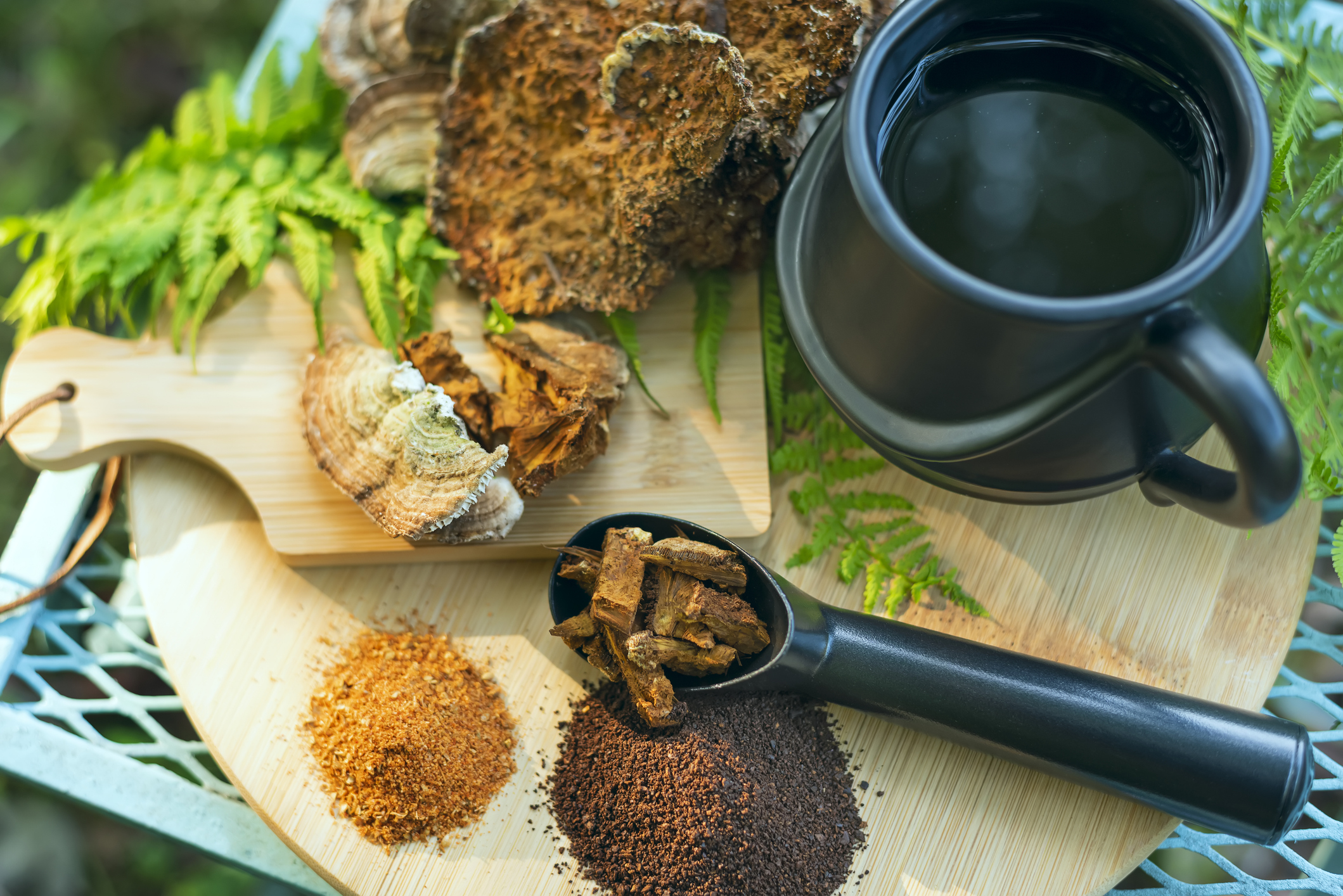

When you think of cancer treatment, chemotherapy probably comes to mind — not mushrooms, right?
But for thousands of years, medicinal mushrooms have been used for tumor therapy in traditional Chinese medicine.
It’s a process that modern science calls fungotherapy.
One of the most important of acinal mushrooms is the Ganoderma lucidum — more commonly known as the reishi mushroom.
Over the years, it’s demonstrated health benefits ranging from fending off fatigue and restoring gut health to guarding against diabetes and improving autoimmune disorders.
Perhaps most importantly, studies have shown that reishi mushrooms can block both cancer spread and invasion of healthy tissues.
But researchers didn’t know exactly what was behind its powerful effect.
That’s all changed thanks to researchers at the Hefei Institutes of Physical Science, who have found the missing link in how acids in the mushroom alter cancer’s ability to satisfy its sweet tooth…
Cutting off cancer’s fuel halts its growth
The scientists specifically looked at the action of Ganoderic acid A (GAA), a bioactive compound extracted from reishi known for its potential anticancer and antidiabetic effects.
They wanted to see how it might impact two glucose transporters, GLUT1 and GLUT3, which are produced in higher amounts by cancer cells that rely on them to provide the “sugar fuel” fix they need to grow.
They found that GAA binds to the glucose transporters, ultimately blocking the uptake of sugar. In a subsequent experiment, they saw GAA significantly reduced glucose uptake in human lung cancer cells.
That’s not entirely surprising since previous research indicates reishi mushrooms reduce blood sugar by increasing insulin release.
According to the researchers, this discovery suggests that GAA could be used to ‘starve’ cancer cells by cutting off their sugar supply, offering a new way to slow cancer growth without being toxic to healthy cells. It also indicates that GAA could be developed into a novel therapeutic option, particularly for cancers with high GLUT expression.
Medicinal mushrooms in cancer therapy
Mushrooms, and especially mushroom powders, have become very popular. You can even find coffee blends that include mushrooms.
And of course, if you like mushrooms, you’ve probably enjoyed them in a stir fry or cooked up in olive oil or butter. Anyone, even cancer patients, can enjoy eating mushrooms.
But according to the experts at the MD Anderson Cancer Center, if you’re being treated for cancer, there are some things you need to know…
As they point out, medicinal mushrooms are not ordinary mushrooms. They can strengthen the immune system and decrease inflammatory compounds which is very helpful to cancer patients. Some studies have shown that they can help cancer patients live longer.
According to Santhosshi Narayanan, M.D., a physician in MD Anderson’s Integrative Medicine Center, “One study showed that when people took mushrooms, they were able to tolerate more rounds chemotherapy treatment, probably because they have fewer side effects, and thereby it might have indirectly improved their survival.”
A few other fungi considered to be medicinal mushrooms include:
- Cordyceps mushrooms – These mushrooms demonstrate the power to enhance the activities of macrophages, phagocytes and natural killer cells, acting as anti-tumor agents.
- Lion’s mane – According to the Cleveland Clinic, the unique nutrients in lion’s mane mushrooms “may help fight off cancer cells and slow the spread of certain types of cancer.”
- Chaga mushroom – The results of one study showed that using a chaga supplement reduced tumor size by 60%. Additional research pointed to the mushroom’s ability to help prevent the growth of cancer cells in the liver.
Finally, it’s important to note that using mushrooms in addition to cancer treatment may be advantageous but should be approached with guidance.
“Mushrooms contain potent biological compounds and will behave like drugs, so treat them like a medication,” says Dr. Narayanan. “Have an open conversation with your care team about the pros and cons, as well as the limitations of the research we have.”
Sources:
Starving cancer cells: Researchers unveil new function of ganoderic acid — EurekAlert!
Can mushrooms help during cancer treatment? — MD Anderson Cancer Center
Anti-diabetic effects of Ganoderma lucidum — Phytochemistry
Chaga Mushroom Health Benefits — Cleveland Clinic
Health Benefits of Lion’s Mane Mushrooms — Cleveland Clinic